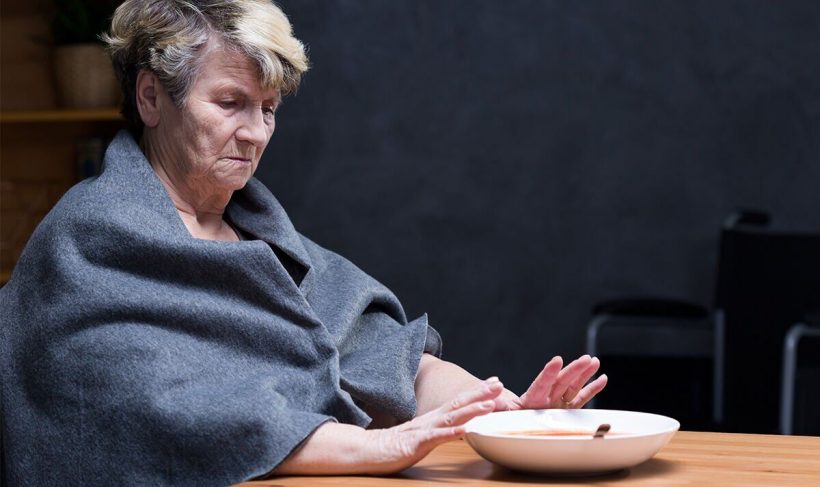Dr Zoe says walking can reduce risk of dementia
We use your sign-up to provide content in ways you’ve consented to and to improve our understanding of you. This may include adverts from us and 3rd parties based on our understanding. You can unsubscribe at any time. More info
Dementia is a syndrome linked to the progressive deterioration of the brain. It typically affects memory and behaviour. Although there is no cure, there are treatments available to help alleviate symptoms.
Therefore, spotting symptoms as soon as possible in a loved one is important.
As the risk of dementia increases with age, many people will typically look for memory issues first.
But one expert has warned of some “lesser-known” signs of the condition.
Bill McKenna, founder of Cognomovement, said that changes in appetite could signal dementia.

Specifically he cited “eating more or less than usual” or “losing interest in food” as symptoms to look out for.
Other symptoms
Mr McKenna said: “There are several symptoms of dementia that you should look out for in an elderly family member.
“Some of the most common and obvious symptoms include:
“Memory loss – difficulty remembering recently learned information or events, forgetting people’s names or familiar places.
“Difficulty with communication – struggling to find the right words, difficulty following or joining conversations.
“Disorientation – getting lost in familiar places, not knowing what day it is or what season it is.
“Changes in mood or behaviour – displaying mood swings, becoming anxious, paranoid or aggressive.
“Difficulty with tasks – struggling to plan or carry out familiar tasks, such as getting dressed or cooking a meal.”

He added: “There are also some lesser-known symptoms of dementia that you should be aware of, such as:
“Changes in sleep patterns – sleeping more or less than usual, experiencing disturbed sleep.
“Changes in personal hygiene – neglecting personal hygiene, such as not bathing or brushing teeth.
“Changes in mobility – struggling to walk or climb stairs, experiencing tremors or clumsiness.”

What to do if you think someone has dementia
“If you suspect that an elderly family member is displaying symptoms of dementia, it is important to approach the situation with sensitivity and compassion,” Mr McKenna advised.
“It is also important to seek medical help as soon as possible, as early diagnosis and treatment can help to manage the symptoms and slow the progression of the disease.
“Your family member’s primary care physician or a specialist such as a geriatrician or a neurologist can assess them and recommend a course of treatment.”
If you suspect you or a loved one is experiencing symptoms, speak to your GP.
Source: Read Full Article
